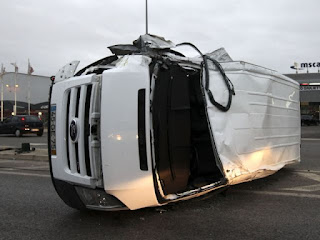A suicide gun and bomb attack on Istanbul's Ataturk international airport, one of Europe's busiest, has killed 28 people and injured 60 more.
Three attackers were involved, with one reportedly opening fire with a Kalashnikov as they targeted an entry point to the terminal.
Recent bombings in Turkey have been linked to either Kurdish separatists or the so-called Islamic State group.
This looks like a major co-ordinated assault, the BBC's Mark Lowen reports.
Ataturk airport was long seen as a vulnerable target, our Turkey correspondent adds, reporting from a plane at the airport.
There are X-ray scanners at the entry to the terminal but security checks for cars are limited.
'Dressed in black'
Flights in and out of the airport were suspended after the attack.
Taxis were used to rush casualties to hospital in the immediate aftermath of the attack.
The Istanbul governor gave the death toll of 28 after first reports of 10 fatalities.
"Three suicide bombers carried out an attack," Vasip Sahin told journalists. "Twenty-eight people have lost their lives. There are also 60 people injured."
Two South African tourists, Paul and Susie Roos from Cape Town, were at the airport and due to fly home at the time of the explosions.
"We came up from the arrivals to the departures, up the escalator when we heard these shots going off," Mr Roos told the Associated Press news agency.
"There was this guy going roaming around, he was dressed in black and he had a handgun."
Charles Michel, the Prime Minister of Belgium whose capital city was
targeted by bombers in March,
tweeted from the EU summit in Brussels: "Our thoughts are with the victims of the attacks at Istanbul's airport. We condemn these atrocious acts of violence."
Security concerns and a Russian boycott have hit the country's tourist sector this year.
More than 61 million passengers travelled through the airport in 2015.
A US state department travel warning for Turkey, originally published in March and updated on Monday, urges US citizens to "exercise heightened vigilance and caution when visiting public access areas, especially those heavily frequented by tourists."

















